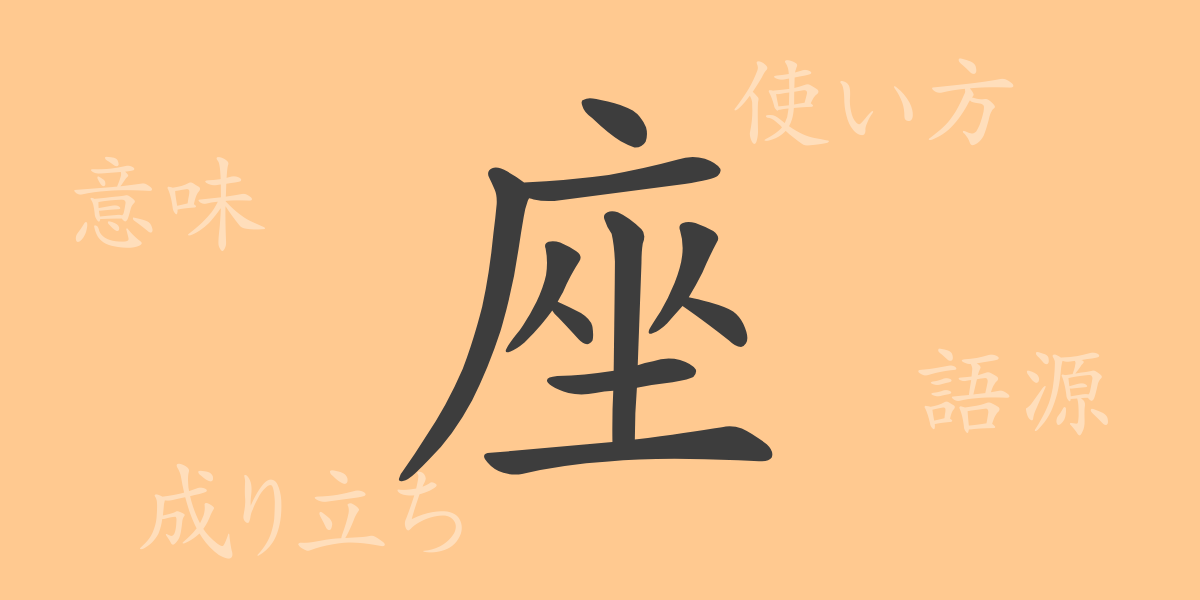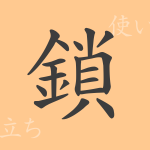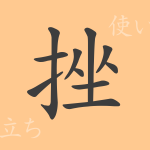There are numerous kanji characters in the Japanese language, each with its own unique history and meaning. The common-use kanji “座” (za) is no exception. In this article, we explore the charm of this kanji, starting from its etymology, its meanings, and usages, to its readings and commonly used idioms and phrases. Step into the world of “座” (za) and catch a glimpse of Japanese culture.
Etymology of 座 (za)
The kanji “座” (za) originated in ancient China, and its shape represents a person sitting on the ground, symbolized by “人” (hito, person) above “土” (do, ground). Initially, it referred to sitting on the ground, but over time, it came to signify places or objects that provide seating, as well as gatherings and groups.
Meanings and Usages of 座 (za)
In modern Japanese, “座” (za) has multiple meanings. It can indicate “sitting” or “sitting position,” refer to “seats” in theaters or cinemas, and also signify “gatherings” or “groups” where people come together. For instance, “座席” (zaseki) means a seat, and “座長” (zachou) refers to the leader of a meeting or organization.
Reading, Stroke Count, and Radical of 座 (za)
The kanji “座” (za) is widely used in Japan.
- Reading: In the on’yomi reading, it is read as “ザ” (za), and in the kun’yomi reading, it is read as “すわる” (suwaru).
- Stroke count: It has a total of 10 strokes.
- Radical: The radical is 广 (madare).
Idioms, Phrases, and Proverbs Using 座 (za) and Their Meanings
There are many idioms, phrases, and proverbs in Japanese that include “座” (za). Here are a few examples:
- 座右の銘 (ざゆうのめい, zayuu no mei): A motto or principle that serves as a personal guideline.
- 円座 (えんざ, enza): Sitting in a circle, or the way of sitting in such a manner.
- 当座 (とうざ, touza): The immediate time or situation; instantly.
- 座談会 (ざだんかい, zadankai): A discussion or symposium held by multiple people on a specific theme.
- 座長 (ざちょう, zachou): The central figure or leader in a meeting or organization.
Conclusion on 座 (za)
The kanji “座” (za) is not only used to denote sitting or places to sit but also symbolizes various scenes where people gather. From everyday conversations to business settings, and even in literary works, words containing “座” (za) are deeply rooted in our lives. From this single character, one can sense a part of the Japanese collective consciousness and culture.

























